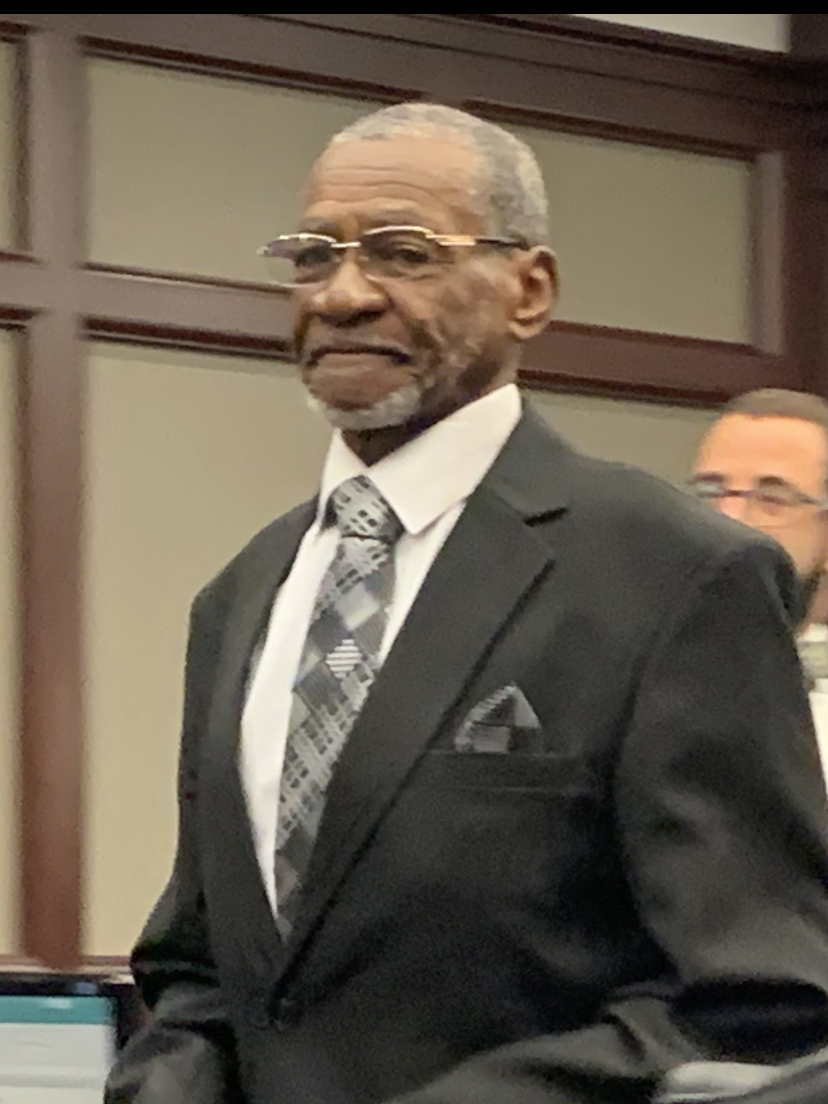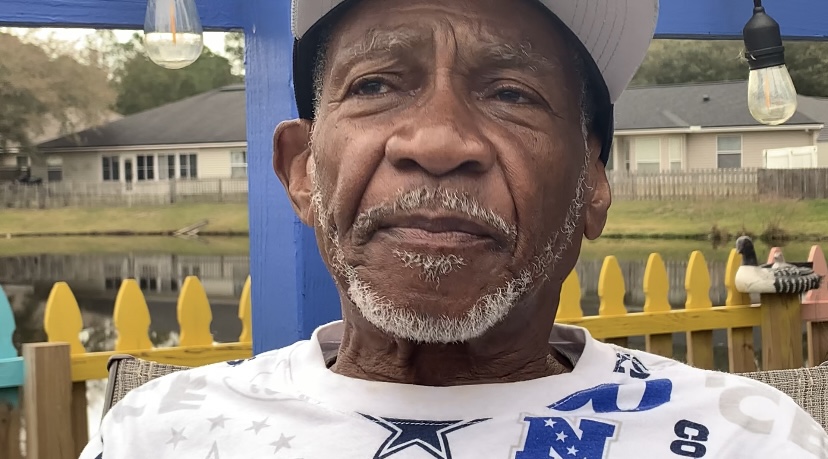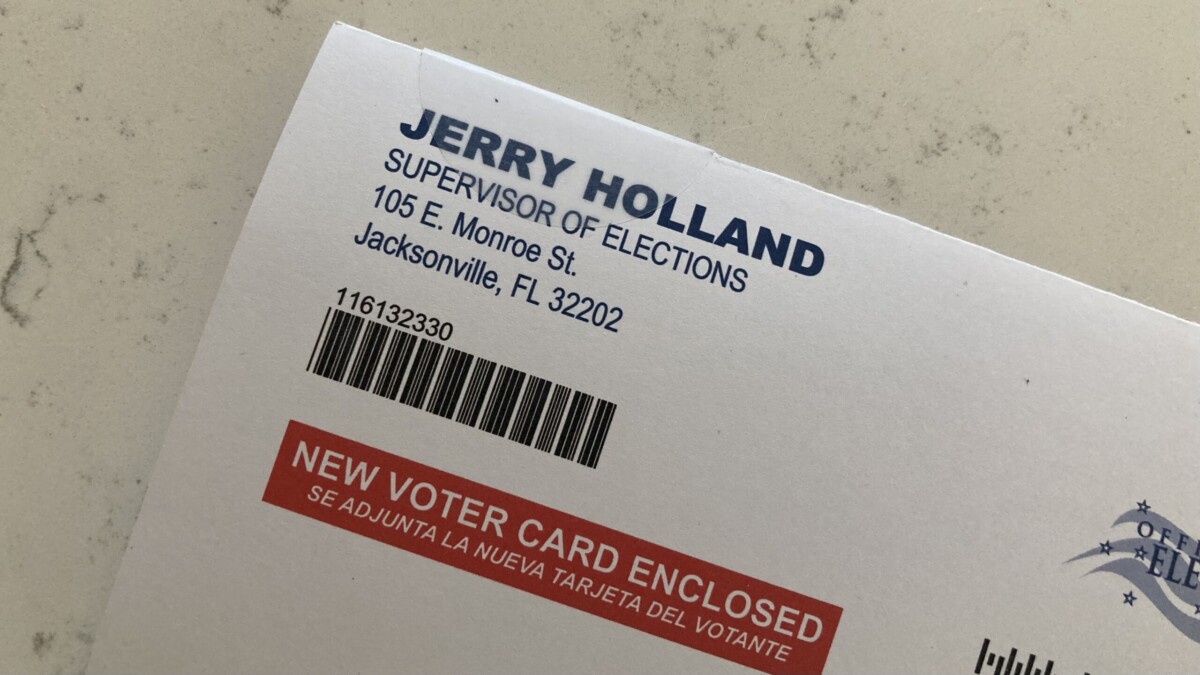A Jacksonville man who spent more than 44 years in prison had his conviction overturned on Wednesday. Prosecutors acknowledged key evidence in the case against Willie Lee Williams, 79, was not disclosed at the time of his trial in 1976.
Williams embraced his Innocence Project of Florida attorneys and shook hands with members of State Attorney’s Office’s Conviction Integrity Review Unit after a brief, sedate hearing at the Duval County Courthouse in Downtown Jacksonville.
Williams was convicted of attempted murder in the course of a robbery and sentenced to life in prison, a crime he always insisted he did not commit. He was paroled in 2020.
While working as a trained legal advocate for prisoners at Coleman Correctional Institution, Williams filed several motions to have his own conviction overturned. But it wasn’t until he reached out to the 4th Circuit’s conviction review unit that his mission gained legal traction. Attorney Shelly Thibodeau, who runs the unit, discovered that one of the two victims in Williams’ case was initially unable to identify Williams. It wasn’t until the victim was hypnotized by a Jacksonville Sheriff’s Office lieutenant working on the case that he named Williams as the perpetrator.
Hypnosis as a memory enhancement tool in criminal cases was considered junk science in many U.S. jurisdictions at the time, though it was permitted in Florida until 1985. But the hypnosis wasn’t disclosed to the defendant or jurors, who were told the victim identified Williams immediately because he would “never forget his face.”
That failure to disclose evidence was a violation of so-called “Brady rules,” which require prosecutors to turn over any potentially exculpatory evidence to a defendant.
After Thibodeau’s investigation found that prosecutors had violated those rules, she reached out to the Florida Innocence Project to take up his case. Wednesday’s hearing to vacate Williams’ 1976 conviction and sentence, held before Circuit Judge Lindsay Tygart, lasted just minutes.
Prosecutors announced they would not refile charges, meaning Williams left court a free man.

In an interview in his Westside backyard just hours after the court hearing, Williams said he was “blessed” to have his full freedom nearly 48 years since his arrest.
“My life is over, I will die in prison,” Williams recalled thinking as he rode the prison bus from the Duval County Jail more than four decades ago. “And that was my mindset at this particular time – not knowing that God had a better plan. And this is that plan: I’m going to be out here free, with my family and my friends.”
Williams’ attorney Brandon Scheck with the Innocence Project of Florida said that beyond its obvious impacts on his client, the case highlights the important work being done by conviction integrity review units.
“The story to be told here is the work that the prosecutors did in the 4th Circuit, and their pursuit of justice and figuring out getting to the bottom of the truth,” Scheck said. “It speaks to the significance of the work that the prosecutors here in Jacksonville are doing on a day-to-day basis.”
The 4th Circuit (Clay, Duval, and Nassau counties) is one of just four judicial circuits in Florida with a conviction integrity review unit. The others are the 9th Circuit (Orange and Osceola counties); the 13th Circuit (Hillsborough); and the 17th Circuit (Broward).
Asked about the Williams investigation, Fourth Circuit State Attorney’s Office spokesperson David Chapman said, “During its investigation, the (Conviction Integrity Review Unit) discovered hypnosis had been used to secure the victim’s pretrial identification of Williams, but this fact was not disclosed to Williams or his attorney, as required by law. The state concedes this newly discovered evidence entitles Williams to post-conviction relief.”
The statement continued, “Years after Williams’ convictions, the Florida Supreme Court ruled that hypnotically refreshed memory was unreliable and consequently inadmissible as evidence of guilt. As a result, the state will not refile the charges from 1975 against Williams.”







